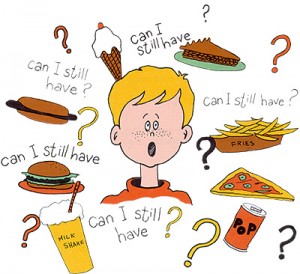 Lately it’s been much harder to maintain normalcy. It seems ever since you had the stomach flu back in July, that you’ve been about as “unregular” as a person can get. All day long, and all night too; you never know when the need will arise. One thing’s for sure, when you become aware of that impending intestinal demand, and I do mean Demand, you’d better get moving. Otherwise, you might end up cleaning far more of the area you happen to be standing in, than you planned. It sounds like you may need and IBS diet.
Lately it’s been much harder to maintain normalcy. It seems ever since you had the stomach flu back in July, that you’ve been about as “unregular” as a person can get. All day long, and all night too; you never know when the need will arise. One thing’s for sure, when you become aware of that impending intestinal demand, and I do mean Demand, you’d better get moving. Otherwise, you might end up cleaning far more of the area you happen to be standing in, than you planned. It sounds like you may need and IBS diet.
IBS Diet: What is IBS?
Does the situation above sound ludicrous, comical even? Well, I can assure you that to people with Irritable Bowel Syndrome (IBS) it’s no laughing matter. Sufferers of IBS come up against these types of situations all the time. They take very seriously an IBS diet. So what is IBS?
IBS is a chronic, symptom-based, bowel disorder. For those who don’t know what that is, it’s a serious pooping problem. And even though it can be managed with an IBS diet, it is characterized by persistent and disruptive:
- Prolonged Abdominal Cramps and/or Pain
- Diarrhea
- Constipation
- Abnormal Alternating Bowel Habits
- Sleep Loss
- Hair Loss
- Stress
Irritable Bowel Syndrome has no known organic cause. There are several theories currently being investigated including:
- A yet undiscovered pathogen (germ)
- Single celled organisms: Blastocysts or Dientomeba Fragilis
- Problems with the newly discovered “brain-gut axis,” (how the nerves of the gastrointestinal tract interact with the brain.)
*Part 2 of the video continues farther down the page.
IBS Diet: Diagnosis
Everybody gets an upset stomach, diarrhea, or constipation every now and then, but that’s not what we’re talking about. This is a chronic (recurring, long term) disease, that intrudes and interrupts everyday life, often times to a debilitating point. It is diagnosed through an exclusionary process. In other words you run tests to rule out the most common gastrointestinal (intestines and bowel) ailments, and then through a rigorous diagnostic algorithm (method) you can diagnose Irritable Bowel Syndrome.
- Hemocult (testing for blood in the feces, visible or otherwise)
- Blood work (Chem 12, SEDs Rate, Liver Function Test, other various tests)
- Abdominal Ultrasound
- Endoscopy/Colonoscopy and Biopsy
- Hydrogen Breath Test (to exclude certain sugar absorption malfunctions)
By conducting these tests and finding normal results, your gastroenterologist can then proceed to the Rome III Process Criteria or similar diagnostic. This is just a fancy term used to describe the criteria for IBS and its subsequent diagnosis. Once diagnosed, you can start an IBS diet.
Rome III Process Questions
- Is the symptom of abdominal discomfort and pain relieved after defecation?
- Was the onset of your symptoms associated with a change in defecation frequency?
- Was the onset of your symptoms associated with a change in defecation form (appearance)?
Subset of Criteria Questions
- Is frequency greater than 3 times a day, or less than 3 times a week?
- Is your stool now an abnormal form (lumpy/hard or loose/watery)?
- Is the passage of your stool now abnormal (strained, urgent, or left with feeling incomplete)?
- Is there a passage of any mucus?
- Are you consistently bloated, or do you have a distended abdomen?
Without the rigorous battery of testing and frank discussion, IBS can be misdiagnosed, as often happens. 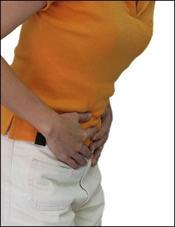 With a plethora of comorbidities (other illnesses that coexist with IBS,) IBS can easily be diagnosed as several other gastrointestinal diseases and illnesses if care is not taken. It has been shown that 94% of IBS patients also suffer from a psychiatric condition. So you can see the importance of correct diagnosis and an IBS diet. Misdiagnosis has even led to unnecessary surgeries.
With a plethora of comorbidities (other illnesses that coexist with IBS,) IBS can easily be diagnosed as several other gastrointestinal diseases and illnesses if care is not taken. It has been shown that 94% of IBS patients also suffer from a psychiatric condition. So you can see the importance of correct diagnosis and an IBS diet. Misdiagnosis has even led to unnecessary surgeries.
IBS Diet: Treatment
Now you know what you’ve got, so what do you do about it? There are several treatments prescribed for sufferers of IBS:
- IBS Diet Restrictions and IBS Diet Guidelines
- Medication
- Exercise
- Stress Reduction Activities
The most important of the above treatments seems to be an IBS diet, and Probiotic (good bacteria in the stomach) supplements. The latest diet recommendation for IBS is the FODMAP diet. This stands for:
- Fermentable
- Oligosaccharides
- Disaccharides
- Monosaccharides
- Polyols
All fancy terms for sugars and substances in your body that you need to avoid. These foods, for whatever reason don’t digest well, and have been shown to significantly add to IBS symptoms. There are complete lists and diets to be found, but make sure you use a credible source for your information. The wrong IBS diet, or the wrong form of a particular diet to ease a medical condition can actually add to the severity of the condition.
IBS Diet: Review
So you have the chronic, symptom-based, bowel disorder known as Irritable Bowel Syndrome (IBS). What can you do about it? An IBS diet, medications, and stress reduction seem to produce the best results. So when searching for the right IBS diet, whether it be a FODMAP diet, or some other reputable diet, make sure you do your homework first.
What does IBS stand for?
a. Isolated Botox Solutions
b. Irritable Bowel Syndrome
c. Irritable Brother Syndrome
d. I Be Smart
What is the Diagnostic Algorithm used to confirm an IBS diagnosis?
a. Rome III Process
b. Rome II Process
c. SAT
d. Holding a horseshoe over a watermelon to see which way it swings
What is the FODMAP?
a. The name of a new car on the NASCAR circuit
b. A new Google Maps app
c. The way a 2 year old pronounces the words Food Mat
d. An IBS diet shown to reduce painful IBS symptoms
Answers at the bottom of the page.

IBS—Free at Last!
The new FODMAP diet described in this book allows the sufferer of IBS to break free of traditional bland high fiber diets. With a new look at all the foods 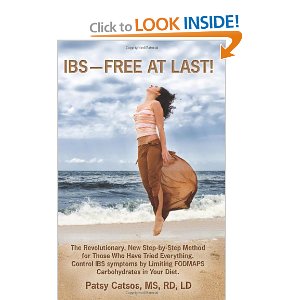 which aid in IBS symptom relief, this book provides a newer, brighter dieting future.
which aid in IBS symptom relief, this book provides a newer, brighter dieting future.
Thoughts
Dieting is hard enough without having to add medical restrictions. For the sufferers of Irritable Bowel Syndrome (IBS,) this is doubly so. High in fiber and bland as it gets, traditional IBS diet law says you have to keep it boring. Well, IBS-Free At Last is a rebel book with a definite cause. Author Patsy Catsos in this tome, has created a new way of eating for IBS. Still healthy and symptom relieving, the foods in this IBS diet will excite, rather than bore the dieter.
TuZen Probiotic- The Natural Solution for IBS
TuZen is a lactobacilli bacterium that lines the walls of the stomach and intestines, and prevents harmful bacteria from irritating the gastrointestinal system. This greatly reduces the symptoms of Irritable Bowel Syndrome 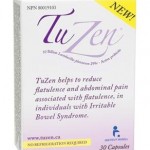 (IBS). TuZen is an extensively studied probiotic supplement, and has been found beneficial to IBS sufferers.
(IBS). TuZen is an extensively studied probiotic supplement, and has been found beneficial to IBS sufferers.
Thoughts
Sufferers of IBS often experience life altering affects from the illness. The pain and discomfort are only compounded by the constant stress of this disease. Not knowing when or where it might strike can be limiting in your lifestyle. Any product that helps reduce, eliminate, or control the dire symptoms of IBS should be a welcome addition to your arsenal of IBS defenses.
Irritable Bowel Syndrome – Secrets
This handy and useful eBook is chalk full of information about Irritable Bowel Syndrome. It covers a wide range of topics, and provides hints on how to deal 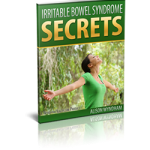 with some of the stickier issues relating to IBS. It covers many of the possible causes and what might be contributing to your symptoms. It also gives many hints at how to better manage your symptoms.
with some of the stickier issues relating to IBS. It covers many of the possible causes and what might be contributing to your symptoms. It also gives many hints at how to better manage your symptoms.
Thoughts
No one said IBS was going to be an easy fix; it isn’t. There are however things you can do to help yourself, and what Alison Wyndham has done is collect a multitude of those helpful hints and remedies in one place. With practical and handy guides on diet, medications, and staying mentally tough, this eBook “hits the spot” when it comes to dealing with IBS.
Answers: 1) b, 2) a, 3) d


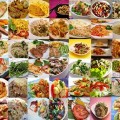
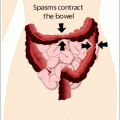
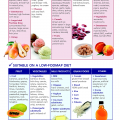
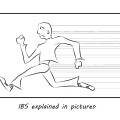

April 5, 2013 at 2:00 pm
I’m glad I don’t have IBS, but I just wanted to say that these pieces of advice are great for anyone who has issues with occasional digestive problems too. Certain foods can trigger them as well. Love your blog.
April 2, 2013 at 2:26 pm
Thank God I don’t have any of those most horrible symptoms like bloody stool or such. Perhaps I have just a minor case, as I get indigestion issues semi-frequently. Definitely like reading your blog about this issue and see if I can get better.